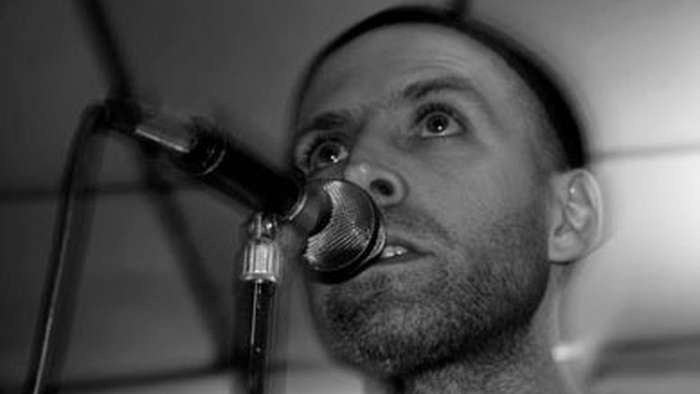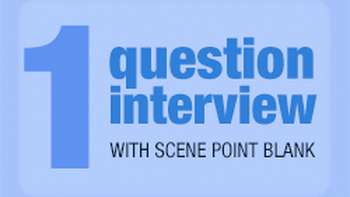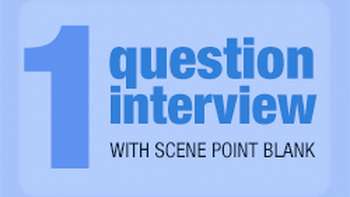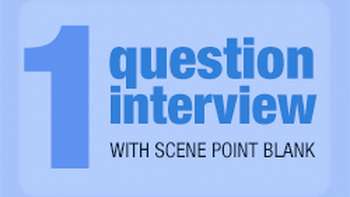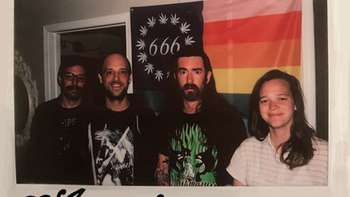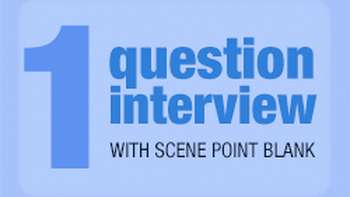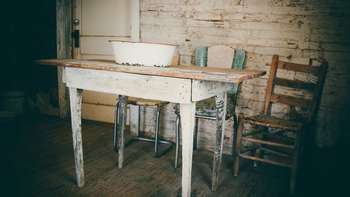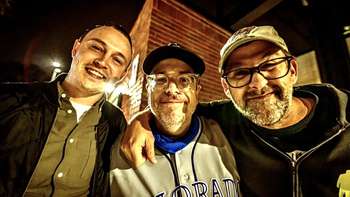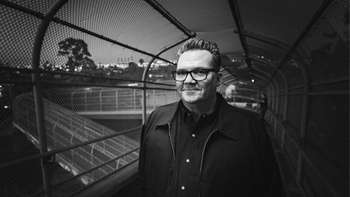One spring day in the early '90s, the fragrance of the new season still in the air, I drove my '82 Honda wagon onto route 50 in Virginia. Clicking on the car radio to a public station, I noticed I was listening to saxophone, bass, and drums in a way I never had before. The moment is fixed in my mind the way something will when your perception suddenly undergoes a permanent change. This chaotic blur of sound was previously on par with trying to sleep while a jackhammer tore up the street outside my bedroom window. There was nothing to lock into and my brain always struggled with it and lost. Free jazz, free music, whatever the label, it did not sit right with me. Until this one day when it became totally relaxing. What once sounded like overlapping conversations reverberating in a crowded restaurant now sounded as organic and soothing as a waterfall. I still haven't recovered.
Having only some of the obvious works of Miles Davis and John Coltrane I felt the urge to dive into this music I didn't know much about. I remembered an interview with Ron Asheton of the Stooges in which he claimed Coltrane's Interstellar Space was a big record for them. So that's where I began, with the pushing and pulling of rhythm and fragmented melody on saxophone and drums by John Coltrane and Rashied Ali. It was mesmerizing and I couldn't figure out why I fell for it so hard. Normally the repetition of James Brown, Public Image, Can and Fela Kuti was where I spent time. This was so different. What was up? It seemed to have something to do with the drumming: always in motion, yet soothing as a river. More like rapids. After many listens I began adjusting the stereo balance to the right so I could focus on Ali's drumming, an endless rush of energy that replaced normal time keeping. I was addicted and I kept searching for more. Eventually I found Albert Ayler's Music Is The Healing Force Of The Universe, which I always held as a truth, but never quite articulated. Stumbling across drummer Milford Graves' ideas about rhythm and heartbeats solidified something else I was feeling but couldn't identify. Here's an excerpt from a poem Paul Hartal wrote about Graves:
In some of his computer programs
Milford applied Cuban and Nigerian music
to analyze human heart rhythms and pitches.
Sometimes the heart beats too fast,
or too slow, or in an irregular rhythm.
This happens when cardiac cells
misfire because of some flaw
in the electrical system that controls the heart.
Milford points out that these arrhythmias
As well as many other heart disorders,
arise from stress related problems.
But the good news is that by music therapy
and biofeedback it is possible
to redirect and retrain an ill heart.
The "healing force of the universe" indeed. There are a number of records I go back to over and over. Beyond Quantum by Anthony Braxton, William Parker and Milford Graves, Lost Brother by Hamid Drake, Cooper-Moore and Assif Tsahar, many of the Sun Ra albums and anything I can get my hands on by Ornette Coleman. Last week I found a listing of the "10 Free Jazz Albums You Should Hear Before You Die," an article from The Village Voice. I had heard many of the artists before, but not the records themselves. To my surprise one was from right here in Italy. An album by saxophonist Virginia Genta and drummer Andrew Barker called Pressure. Below the album review was a video of Genta with drummer Chris Corsano performing on a terrace in Lisbon:
I was floored. Within a day or two I was asked if I would contribute an article to Scene Point Blank. I knew who I wanted to interview and soon Virginia was emailing answers to my questions. She also has a band called Jooklo Duo with drummer David Vanzan, with variations as a trio, sextet, or octet. Turns out she's collaborated with John Paul Jones, Bill Nace, and many others. Virginia also has a label called Troglosound which she and David started in 2003 as an artwork and design project for album covers, posters, etc. They release very small runs of vinyl, lathe-cuts, tapes, and CDRs. Let's see what we can learn about this music from someone in the midst of the chaos.
Joe Lally: Can you introduce yourself, if you don't mind, first stating where you were born and where you grew up (if it's a different place) and where you live now.
Virginia Genta: I was born and grew up in different small towns of the Veneto region (located in the Northeast of Italy), pretty much a countryside dead-province context, with nearly nothing to offer to young people.
After lots of moving I settled down on the delta of the Po River, still in the Veneto region, but at least there's no society at all here (I actually live on an island of about 4,000 inhabitants). I must say I'm travelling so much that I just come back here between one tour and the next, and it's quite relaxing to be far from people sometimes.
What music or sounds do you remember hearing that first made an impression on you as a child?
Wow, I must go back quite a lot for this, and it's hard for me to mention one thing specifically.
My father used to play guitar and he exposed me to music ever since...I remember hearing a lot of Brazilian music, Italian folk music, and lots of world music in general. It's strange when you are a child you feel music in a totally different way. As a teenager, I started going through my father's vinyl records (a lot of jazz-rock and prog: Soft Machine, Henry Cow, Bruce Palmer, King Crimson, and all that) and I was really shocked when I discovered a cheap edition LP of a compilation of Ornette Coleman's music, part of that Italian series called I Grandi del Jazz. That really moved something within me.
I also have very clear memories of when I first listened to some tapes of Charlie Parker and Thelonious Monk. There was some kind of magic atmosphere there that I really liked.
What was it that made you want to play an instrument? Which instrument did you play first and how old were you?
I don't think there has been an exact turning point for that, it just grew gradually and it's still growing now, and it will continue, hopefully forever. I feel my music and life path as ever-evolving, ever-changing, and ever-expanding.
I was really intrigued by keyboards as a kid (Was I 7 or 8? I can't remember...), either small Casio funny things with cheesy sounds or some old pianos that my grandma had at her place. I could spend hours on that Casio Tone I had (and I still have now), driving my mum mad. Then my father bought me a small wooden clarinet for Christmas when I was 10. I really enjoyed the fact that it was so loud, but I found it too hard to play.
I also had a classic guitar that I used to play a bit. I even took three lessons with a teacher, but I got very bored with it so I soon forgot it. I was more into drawing, singing invented songs, and playing games on the street with my mates than being inside studying music.
Then, as a teenager, something happened and I felt the need to go back to music. When I met David Vanzan (we were both 15) we just started jamming. I was much into drums at that point. In 2002 we finally formed our first real band (we started touring Italy and Europe with that), a duo called Zurich Against Zurich, where I played electric guitar and David played drums and electronics. It started out as a noise-rock kind of thing, then evolved to a very harsh and loud action, with a lot of big amps and so on. We gave an end to that band in 2007 when we thought it really got to the climax and it was time to let it go. Plus, we were already exploring some other fields and I was already playing saxophone, so we were feeling ready to focus on Jooklo Duo.

Virginia Genta
What was the first album you really wanted and where did you get it?
Oh, that's hard to say...
I think I started looking for records myself when I was around 13 or 14. For some strange reason (which I can't remember, although I'm trying to) I really wanted to hear to The Birthday Party—Nick Cave's first band, I think. There wasn't any specific album I wanted to hear, I just wanted to hear what the band sounded like. I talked about that to my best friend at that time, and she gave me Prayers on Fire as a birthday gift. I listened to it a lot for about a year, alongside Sex Pistols, Nirvana, Man or Astro Man?, and some other stuff of that kind. But I didn't go deeper with that, for I soon started exploring the boundless and fantastic lands of experimental music.
What was the first live show that really struck you deeply?
Paul Flaherty & Chris Corsano playing their classic duo in Bologna in 2004. By the time I saw that, I had just started playing saxophone and that meeting has been something very important for me. Also, that same night Paul invited me to join them on their gig in Castelfranco, Veneto the next day (quite brave from him to invite on a gig someone who just picked up a horn), and that was probably the first time I played sax on a gig. Those two days will stay in my memory for a few reasons forever.
Of course, I had seen many other gigs before, but nothing really gave me that kind of inspiration until that. So from that day I started hoping I could give the same kind of energy to other people someday.
Have you always played by ear or did you study music formally?
I've always played by ear and I'm glad of it because I now can see that, with the years, this process is getting more and more refined with sensitivity going to a deeper level.
I never studied music formally, I always followed my personal path instead. Me and David have developed a sort of code that allows us to play all kinds of free music but with an organization that reigns even in the midst of chaos. Of course, behind this there are thousands of hours of personal practice and study, lots of doubts that bring to an objective self-criticism, and many phases of change and challenge. It ain't easy but it's surely worth it.
--
Today I'm enduring a crosstown trip by bus. On rainy days such as this one everyone's crushed against each other. The woman seated near me drops her book and, bending my knees but keeping my torso straight, I'm able to retrieve it from the floor. The smell of tobacco on the breath of the man next to me and this uncomfortable position I hold trying to maintain my balance doesn't really bother me. Through my headphones I follow the rise and fall of thunderous notes issuing from Virginia's saxophone. The percussion is shifting between one tempo and another as it sprints ahead of her fury then quickly slips behind to coast in its wake. The constant exploration is revitalizing and inspiring. While I'm swept up in its force I forget about the crush of humanity and all of its hopeless folly.
I knew an interview with Virginia Genta wouldn't uncover the mystery of how the young woman that we see in the video in a summer dress and sandals is capable of stopping a charging rhinoceros with her fearsome playing, but the energy and healing quality it's offering is there for us if we remain open to it.
-- Joe Lally
Joe Lally has played bass in Fugazi since their inception in 1987. In 2003 the members of Fugazi decided to take an indefinite hiatus from recording and performing. Since that time Joe has released three solo albums, accompanied by various musicians and friends. He presently lives in Italy with his wife and daughter.
